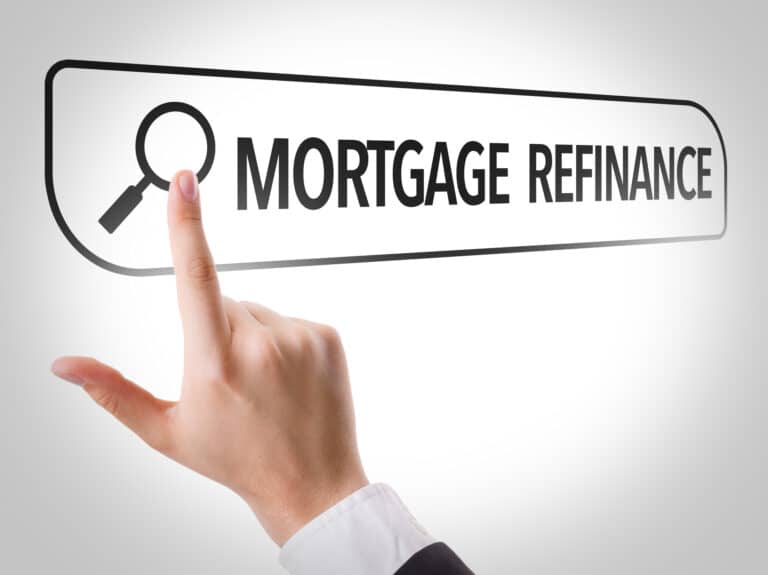
Do you struggle to make your monthly mortgage payment? Refinancing may help you manage your money better, decrease your interest rate, eliminate PMI, or cash out your equity.
But wait, what if you’ve already refinanced? Can or should you try again? We’ll look at how frequently you can remortgage and if doing so is wise.
How many times may I refinance?
Your ability to refinance your mortgage is not legally limited. If you desire a cash-out refinance, there are several things to keep in mind that mortgage lenders put out in their refinance policies.
REFINANCE AND EQUITY
Remember: You need equity to cash out. If you’ve already accepted a cash-out refinancing, you may have less equity than you believe.
Every time you tap into your equity, you lower the amount you may borrow. Most lenders won’t let you borrow 100%. Before you refinance, you’ll need to calculate your equity.
Cash-Out Refinance
Assume you pay down $50,000 of your mortgage and still owe $100,000. You need $30,000 in repairs and choose a cash-out refinancing. Your new loan is $130,000 and you take $30,000 out.
After 2 years, you need $20,000 to pay off debt. After interest, you’ve only paid $2,000 toward your principal since your refinancing.
Your loan debt is now $128,000, but your equity is just $22,000! Most lenders only allow you to refinance between 80% and 90% of your loan.
A cash-out refinancing takes over 90% of your equity if you remove $20,000 from it. A lender ready to service your refinancing will likely be few.
However, you won’t obtain the greatest interest rate, meaning you’ll end up paying thousands more in interest.
Should You Refinance Multiple Times?
You may need another refinancing for numerous reasons. Here are some scenarios when it may be beneficial.
Taking A Lower Rate
Have rates fallen since you refinanced? You may need to refinance again to benefit. Almost usually, lowering your interest rate without altering the length of your loan saves you money.
A slight adjustment in your interest rate may save you hundreds, if not thousands. So, you have a 20-year mortgage with a principal balance of $150,000 and a 4.5% annual interest rate.
You may refinance with the same conditions and a 4% APR. Non-refinancers pay 77,753.84 in interest. If you refinance, your total interest is $68,152.95. Savings of almost $9,601 from a 0.5 percent rate reduction
Increasing Your Loan Term
Unexpected shifts in one’s financial situation are not uncommon. Even if you’ve done it before, if you’re having trouble making your payments, you may have to do it again.
To avoid a second or third refinance, it is better to foreclose. Your interest rate will rise if you refinance to a longer term, so keep that in mind.
Eliminating Mortgage Insurance
How many of you have to purchase PMI when you purchased a home? Having less than 20% down on a conventional loan necessitated this.
Purchasing private mortgage insurance (PMI) protects your lender should you default on your loan. If you own your house, PMI does not protect you, but you are still responsible for making the monthly payments.
With 20% equity in your home, you can refinance and remove PMI from your loan. You can save money over time, even if you’ve already refinanced your mortgage.
To convert an FHA loan to a conventional loan, you must have 20% equity in your home. An FHA loan requires you to pay insurance each month for the duration of the loan. To avoid lender’s insurance, you must have at least 20% equity in your home when you refinance from FHA to conventional loans.
Considerations for Multiple Refinancing
It isn’t for everyone, even though the advantages appear universally appealing. Let’s look at some things to consider before refinancing.
You Must Pay Closing Costs
Unless you choose a no-closing-cost refinancing, keep in mind that closing charges are always incurred. Some typical closing fees when refinancing include:
- When you seek a refinancing, your lender may impose an application fee. Whether or whether you get a refinancing, you must pay your application cost.
- Have you lately had an appraisal? Even if you have, your lender may demand another. This ensures the lender isn’t lending too much.
- Fees for inspections may be required before refinancing. A remortgage may need specific inspections, while others simply demand them every 5–10 years.
- Review and closing fees: In certain places, you need an attorney to complete and evaluate your loan. Attorneys’ fees vary greatly by state.
- Title search and insurance: A new lender needs to verify that you own the property outright. Expect to pay title insurance and search costs again when switching lenders (even if you just refinanced).
Closing expenses vary by region but are typically 2–3% of the entire loan amount. A second refinancing might soon eat into whatever savings you’ve made.
Your Lender’s Standards Must Be Met
When refinancing, you must fulfill the lender’s conditions. Debt, income or credit score higher or lower than when you last refinanced? You may face rejection. Know your DTI, equity, and credit score before you apply
Prepayment Penalties
While Rocket Mortgage® does not charge a prepayment penalty, some lenders do. If you pay off your loan in 5 years, you may have to pay back any interest savings.
A refinancing that resets your loan’s duration might cause issues. Before applying for a new refinancing, check to determine whether your old loan included an early repayment penalty.
Summary
You may refinance your mortgage loan as many times as you like. However, there may be limitations on your ability to refinance. These are:
- Equity in cash-out refinances
- Final expenses
- Prepayment fees
- Due
Refinancing numerous times may help you make your payments, reduce PMI, and take advantage of dropping interest rates. You can use a refinancing calculator to estimate your savings or apply for a refinance online today.